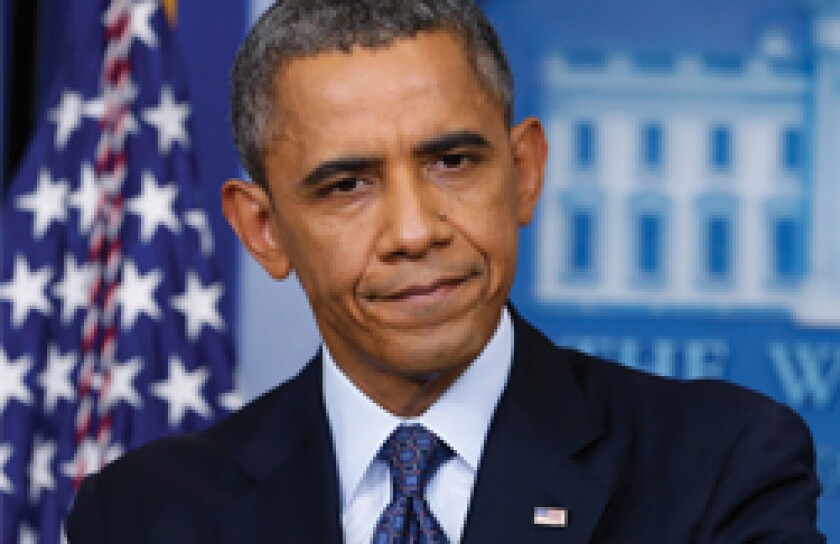Hopes were rising on Thursday that Democrat and Republican politicians were moving towards a deal to avert a US debt default next week, sparking a sharp market rally.
Leading Republicans held a meeting with President Barack Obama at which they offered a temporary and short-term debt limit increase to stave off default. Although the offer was not accepted outright, talks were continuing through the night.
The Dow Jones index in the US closed up by more than 300 points or 2% on Thursday while markets in France, Germany and Spain notched up similar gains before the White House meeting. Bourses in emerging markets such as Brazil posted strong gains while Asian stocks opened sharply higher before Emerging Markets went to press.
Policymakers in developing countries gave a cautious welcome to the developments but said it was “imperative” that the two sides worked to achieve a long-term deal.
Amar Bhattacharya, director of the secretariat of the G24 group of developing countries, said a US default would have an “outsized impact” on all emerging markets. “The last time there was such a stalemate stock markets collapsed by 15% in emerging markets and the impact was felt for months so we feel it’s imperative to reach an agreement,” he told Emerging Markets.
“If Congress and the White House don’t reach an agreement, if they default on debt, it will be disastrous. The impact on emerging markets will be huge. For major creditors like China and Japan it will be a disaster. The sentiment coming out of the Hill and the White House is that cooler heads will prevail.”
Sri Mulyani Indrawati, chief operating officer at the World Bank, told Emerging Markets it was “in everyone’s interests” for the dispute to be resolved. “Any default will obviously create danger for the global economy and can wipe out the development achievements made by many countries,” she said.
“Whether there is a temporary deal on the debt ceiling or not, this [period of grace] should be used by emerging markets to deal with their vulnerabilities.”
A default could trigger a slump in US Treasury bonds, which would mean yields would rise and push up the cost of borrowing across the world. Republicans in the House of Representatives offered to extend the government’s ability to borrow money by six weeks if President Obama agreed to negotiate over reopening government; without that move, it would run out of money to meet certain obligations on 17 October.
The White House issued a cautious response, saying President Obama would consider a proposal but added that he would prefer a longer extension of the debt limit. It is not clear if Republicans are prepared to drop their attempts to de-fund or delay Obama’s 2010 healthcare law.
The two sides held a 90-minute discussion. “We had a useful meeting,” said Eric Cantor, the House majority leader after the meeting. “It was clarifying for both sides as to where we are.”
Yields on short-dated debt fell on news of the six-week delay but longer-dated bond yields rose as investors looked ahead to continued political fighting. Charles Dallara, former US Treasury official and former managing director of the Institute of International Finance, said the two sides on Capitol Hill needed to use the six-week window to get a “serious agreement on medium term fiscal reform in this country”. “It is urgently needed. This is not just an American economic issue right now,” he said.
Angel Gurria, secretary general of the OECD—the group of leading developed and emerging economies—said that failure to strike a deal would plunge many countries into recession. “Even if you assume that there is not going to be a default, but just a rollover, you need... a fantastic juggling act,” he said.
